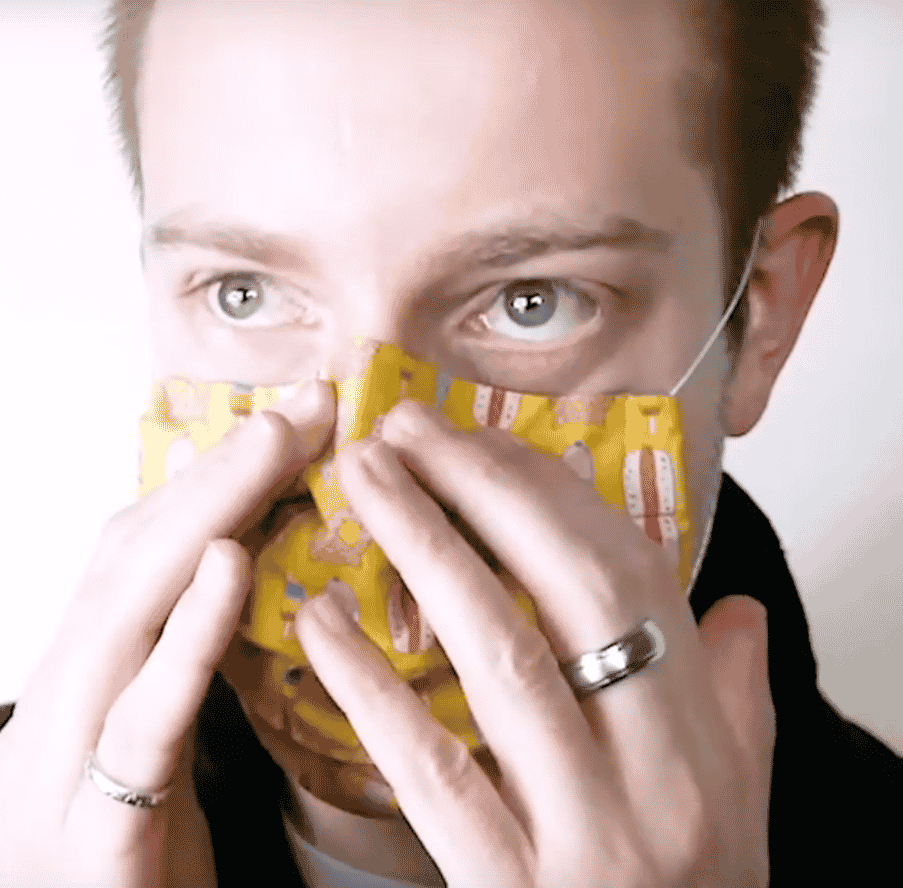To keep both you and your loved ones safe, we’ve created a face mask pattern and video tutorial with an optional nose crimp and filter pocket. And it can all be completed with items you probably have around the house already!
Download the free pattern by clicking here.
Materials needed:
• 9” x 8” (22.9cm x 20.3cm) top fabric in 100% cotton
• 7” x 7.5” (17.8cm x 19cm) lining fabric in 100% cotton
• (option 1) Elastic cord – Note that we found the round elastic more comfortable to wear over a longer period of time, but a flat elastic cord will still function if that’s what you have.
• (option 2) If you do not have any elastic cord at home, you can sew your own ties by cutting 2 of 12” x 1” strips of fabric, folding it in half twice lengthwise, and sewing down the center to secure them.
• Sewing thread – We used Designer™ 40wt polyester for the top thread as it is strong and flexible, and DecoBob™ 80wt cottonized polyester in the bobbin. Cotton sewing thread will also work just fine.
• (optional) Aluminum can or paper clip for the nose crimp
* Note that 100% cotton is recommended to sew your masks from as it offers both breathability while still doing an okay job filtering particles.
Filter:
• Cut to 6.5“ x 2.5” (16.5cm x 6.4cm). If you have access to a non-woven polypropylene fabric (used in the manufacturing of face masks), this would make the best filter to place in this pattern’s filter pocket and would be disposed of after use. However if you do not, you can use another piece of 100% cotton fabric as we did in this video. You can either dispose of it after use or wash it as described below.
Washing your face mask:
• It is recommended that your reusable face mask is washed in your home washing machine with the water settings on hot using regular washing detergent. It should then be completely dried in the dryer on high heat. Wash your face mask after each use.
Direction:
Cut out the main and lining fabric as per the sizes listed. On the long side of each piece of fabric, press the hem up by ½” (or 1.3cm).
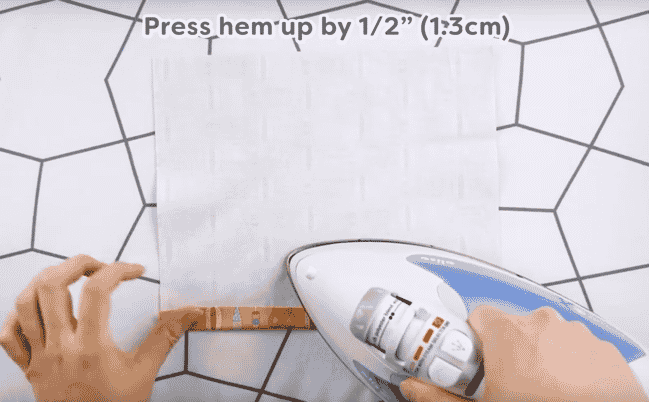
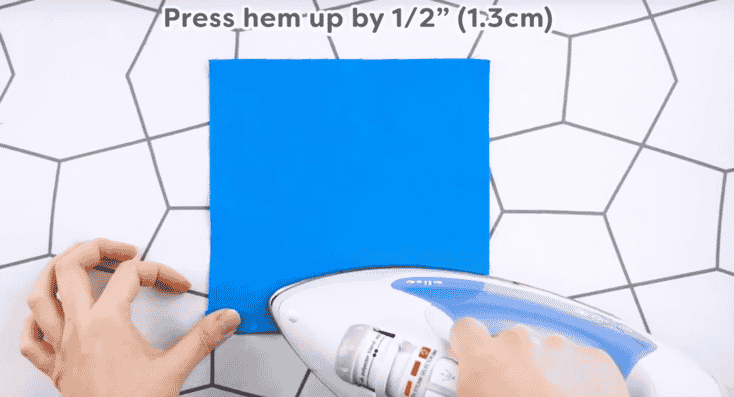
Using a ¼” (or 0.65cm) seam allowance, sew across the hems on both pieces of fabric.
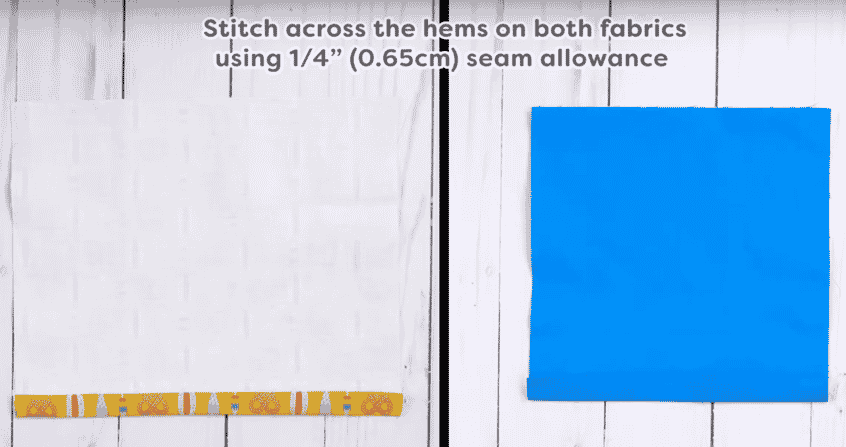
The right side of your fabric will look like this:
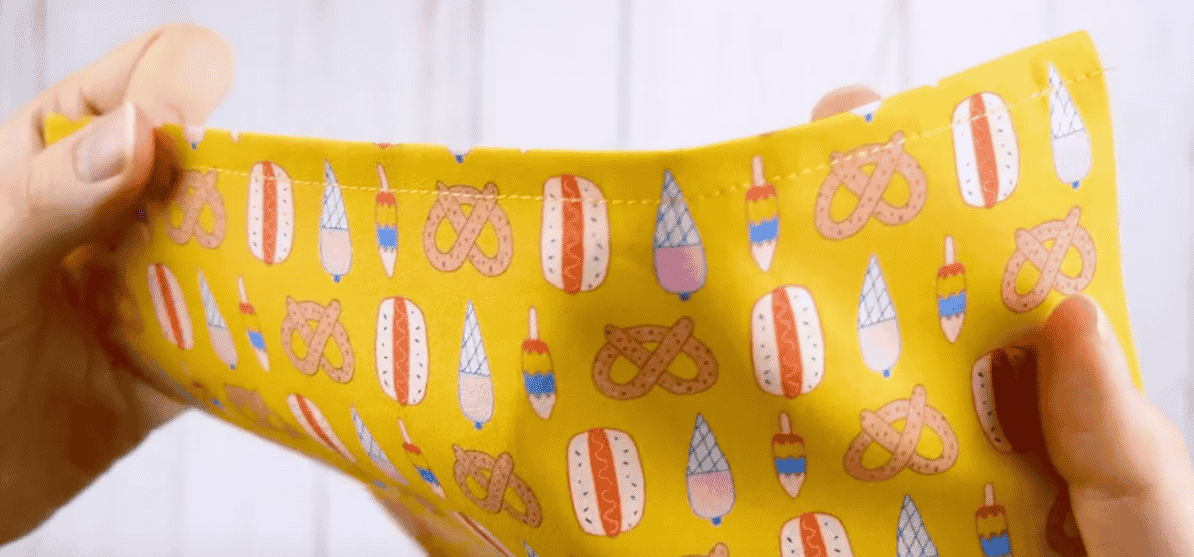
Place the lining fabric on the top fabric right sides together with the lining piece centered in the middle of the long side and the raw edges together. Pin them in place against the raw edge.
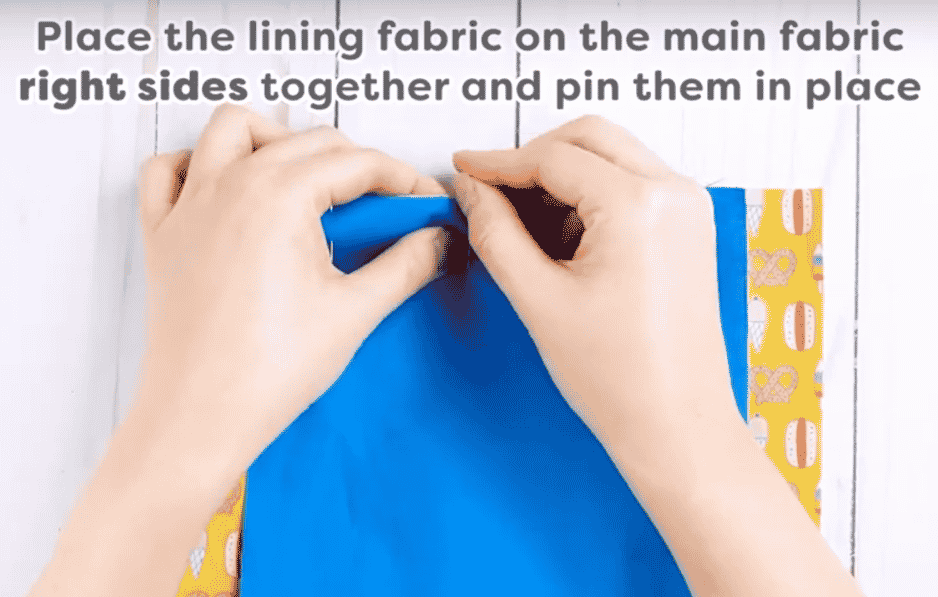
Sew along the raw edge with a ¼” (0.65cm) seam allowance.
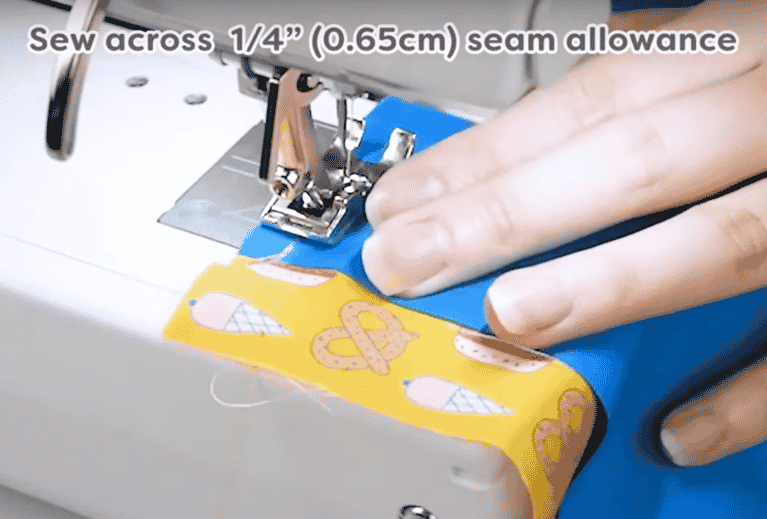
Flip the pieces around so they’re now facing the wrong sides together and give it a press so it lays flat.
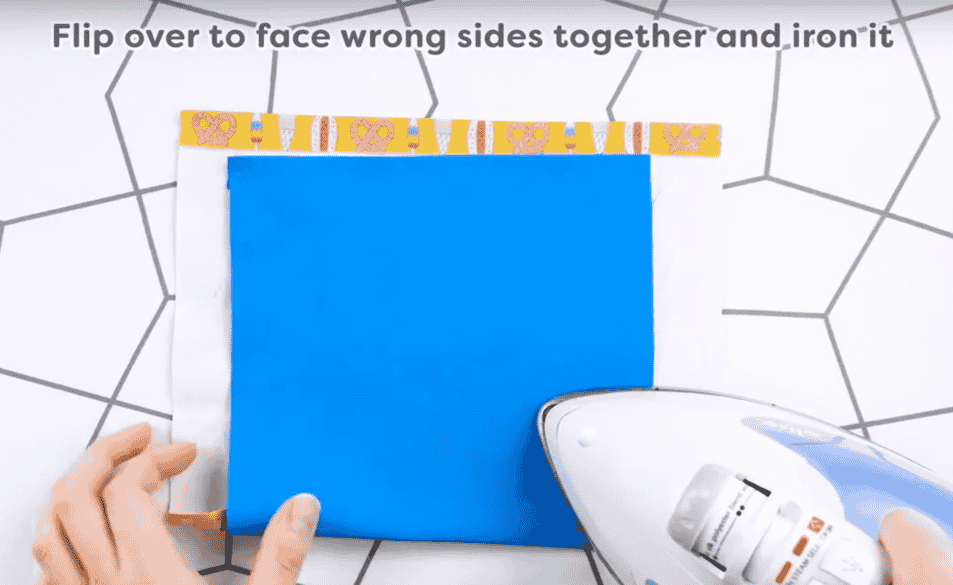
Next we’ll be adding a nose crimp so that the face mask fits around the contours of the nose better. This will result in a snugger and more comfortable fit. We will be making our nose crimp from an aluminum can, however you can also use a piece of cut paper clip as well. If you would prefer not to include a nose crimp in your mask, you can skip this step.
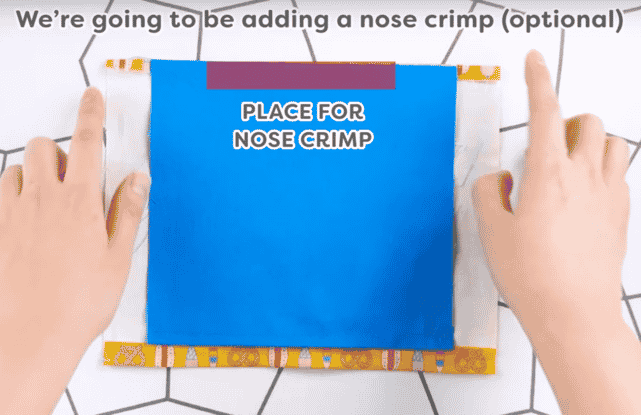
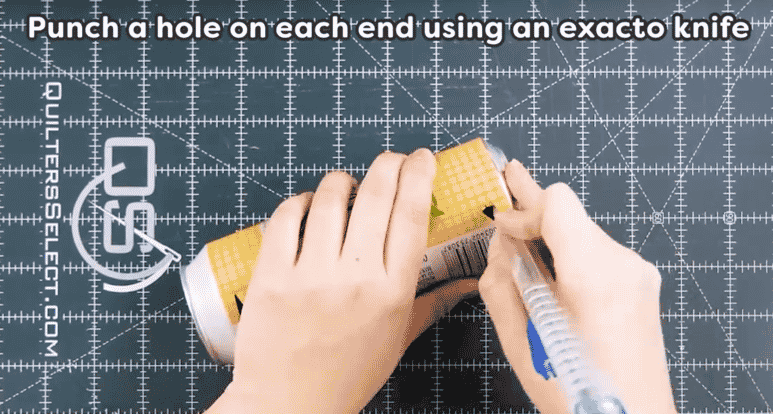
To safely cut open an aluminum can, punch a hole using an exacto knife on each end of the can. Take a pair of sharp and sturdy scissors (not your fabric scissors!) and cut away the top and bottom of the can.


Cut straight up through the center to open the can up and trim away the sharp, jagged edges on each end. You’ll now have a flat piece of aluminum to cut your nose crimp from. Using an exacto knife, cut a ½” (1.3cm) strip from aluminum and trim it down to a length of 4” (10cm). Because the corners will still be sharp, we recommend buffing them out with a sheet of extra fine sandpaper so that it doesn’t tear into the fabric. A nail file will also work in a pinch.
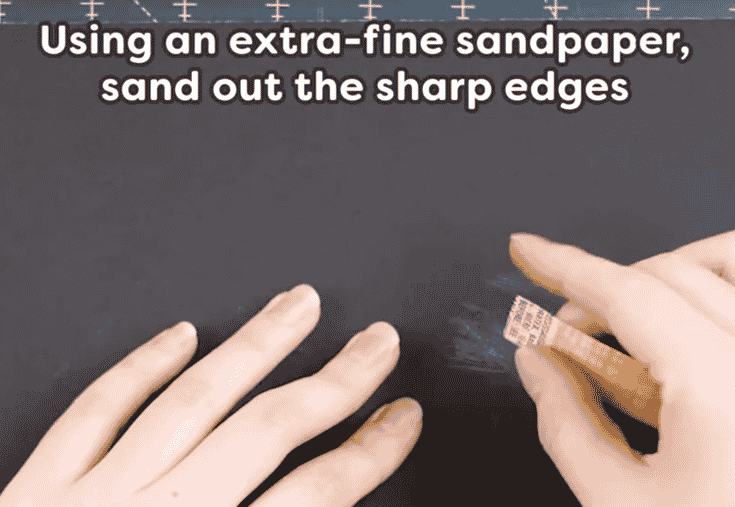
Place the aluminum strip between the top and lining fabric, snug against the seam where they are sewn together. Keep it centered and use pins on either side and under it to hold it in place, while also giving yourself a visual on where you should sew to create a pocket around it.
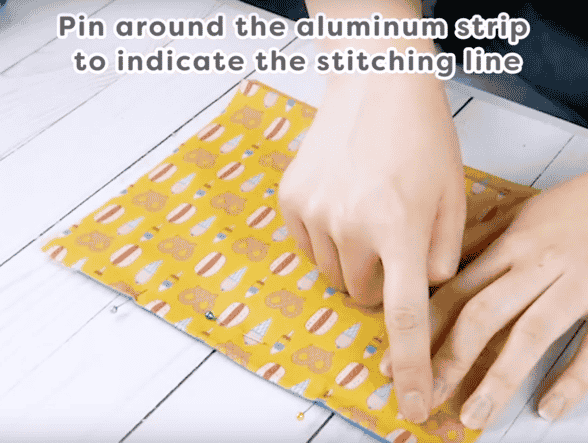
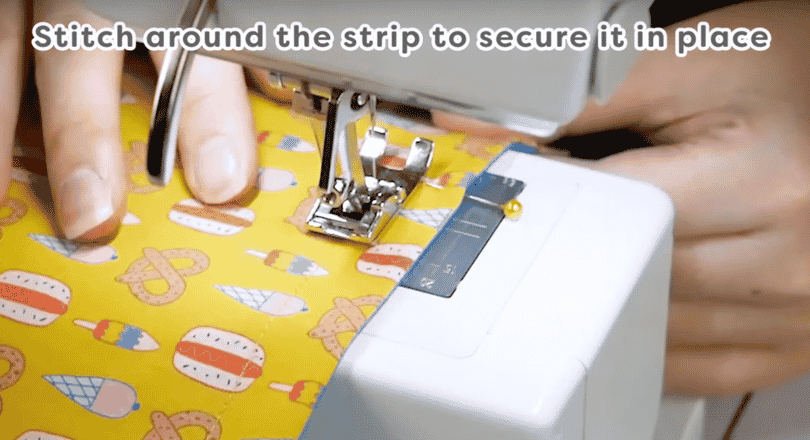
Next, fold ½” (1.3cm) from the fabric on the opposite edge from the nose strip pocket and press it into place.
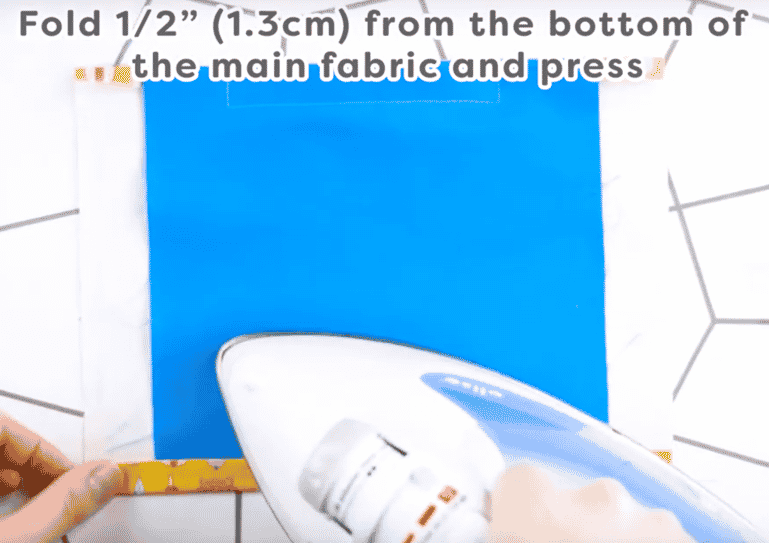
Flip the fabric over to the right side and fold 3 pleats all the way down the fabric. Press them into place.
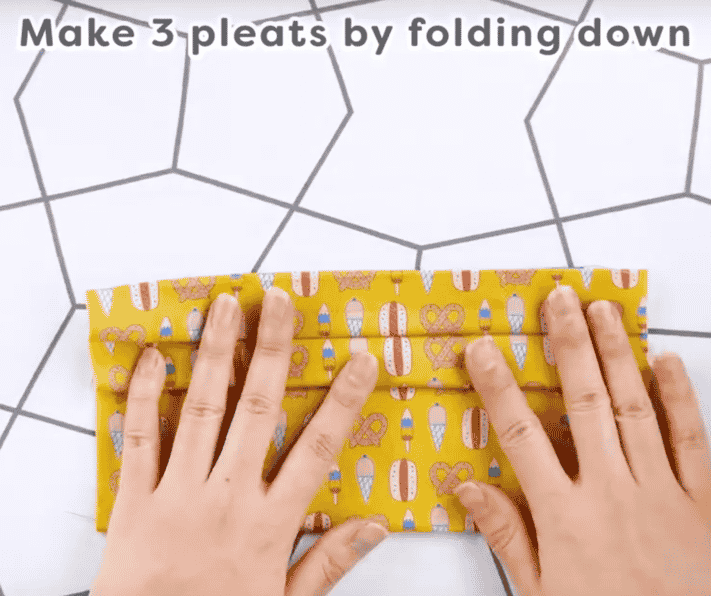
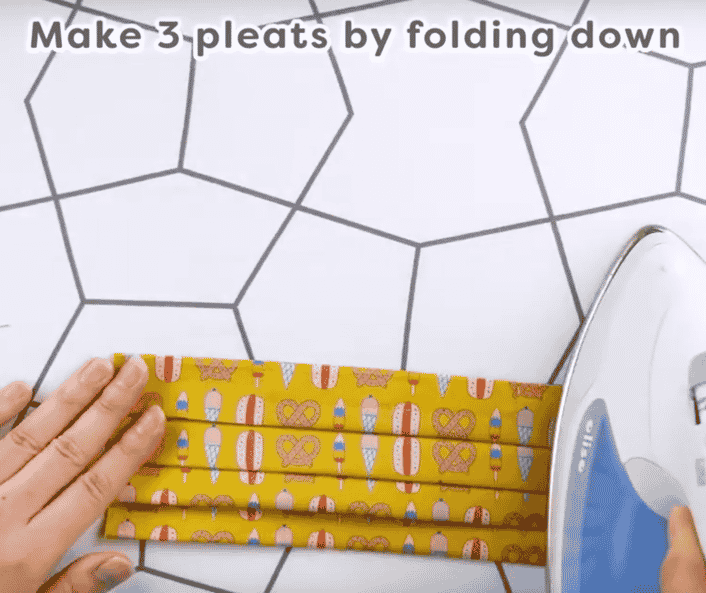
Pin the pleats into place on the wrong side and sew on a ¼” (0.64cm) seam allowance from the edge of the lining fabric.
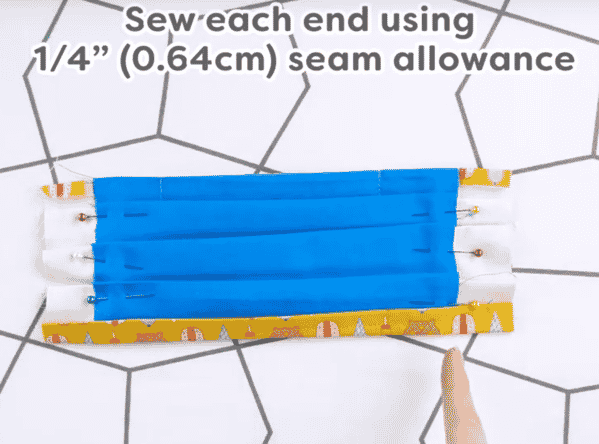
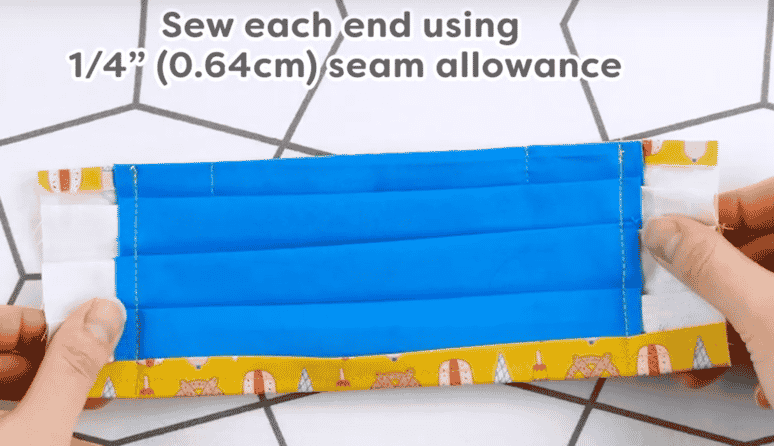
The opening at the bottom can fit a 6.5“ x 2.5” (16.5cm x 6.4cm) size filter sheet!
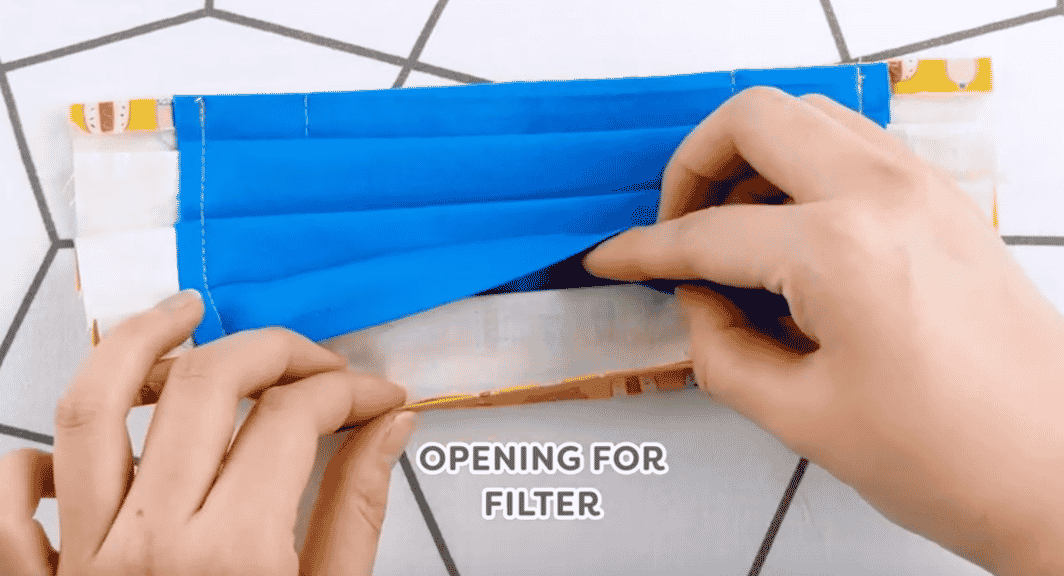
To create a pocket for the ear elastics (or straps if you’re sewing your own), fold the raw edges on each side over by ½” (1.3cm), then again a second time, pressing after each fold.
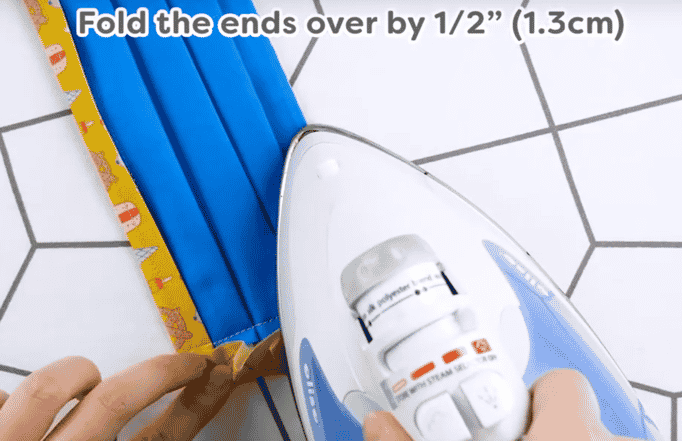
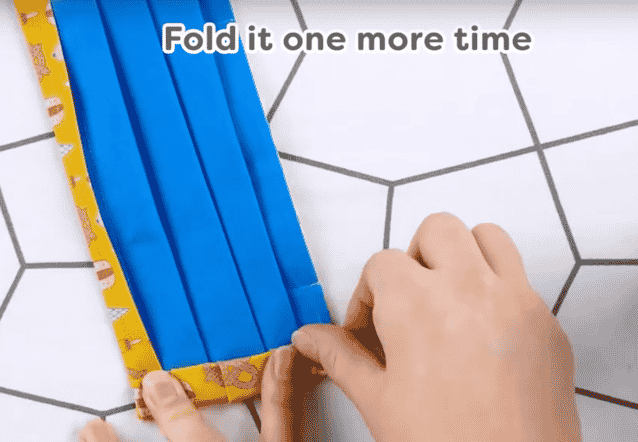
Sew as close as you can to the inner edge to create a hole for your elastics/straps.
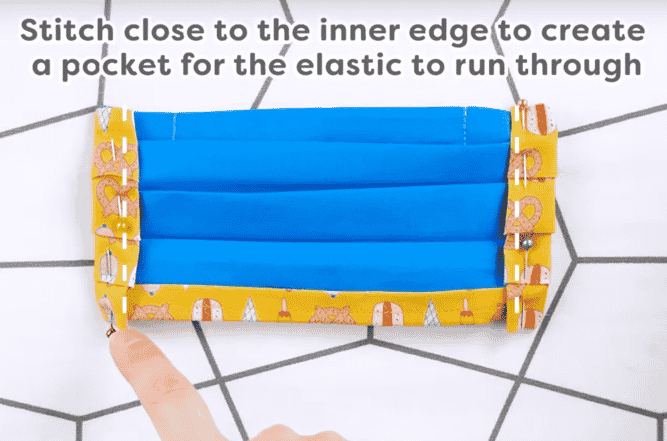
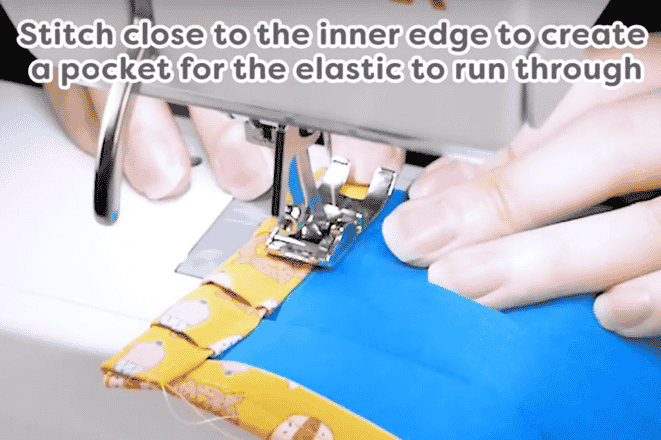
Your face mask is almost complete! It will look much like this:
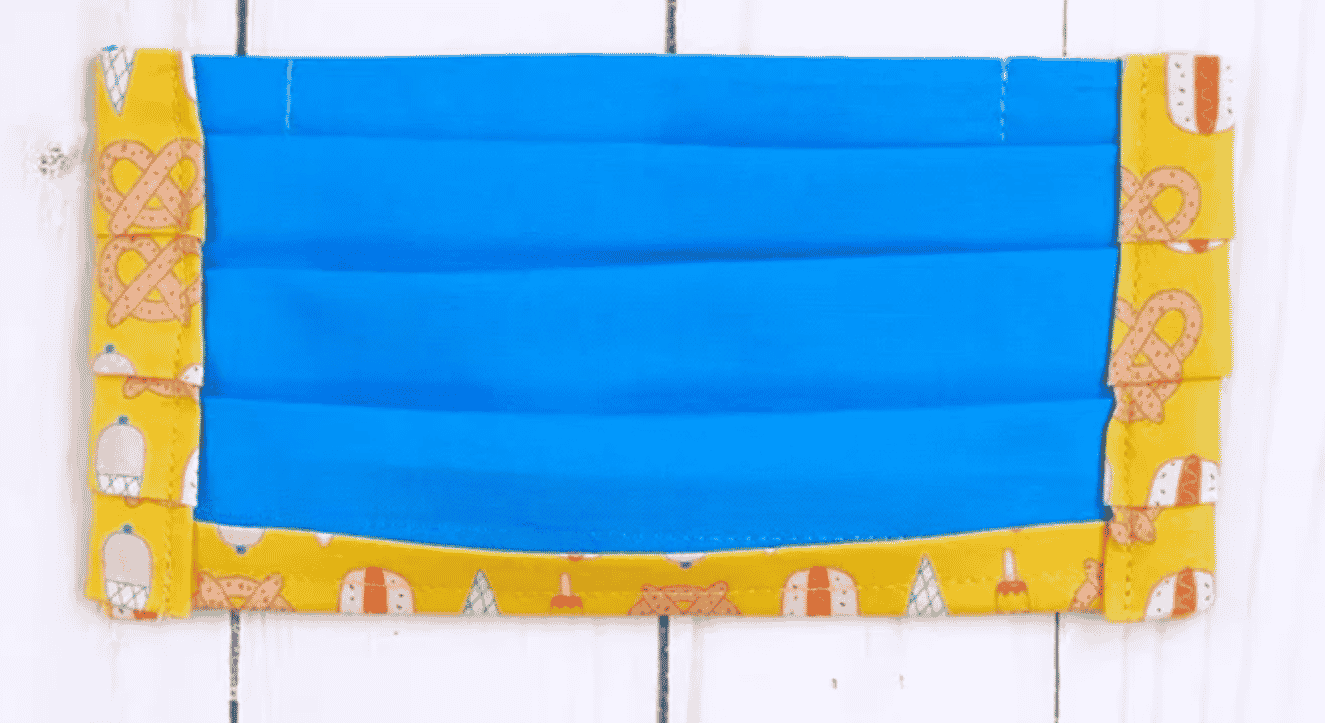
The last step is to put the elastic or straps through the holes. For elastics, cut two 12” (30.5cm) long lengths. If you are sewing your own straps, cut two 12” x 1” (30.5cm x 2.5cm) pieces of fabric. Fold them in half lengthwise twice and sew once down the center to secure them.
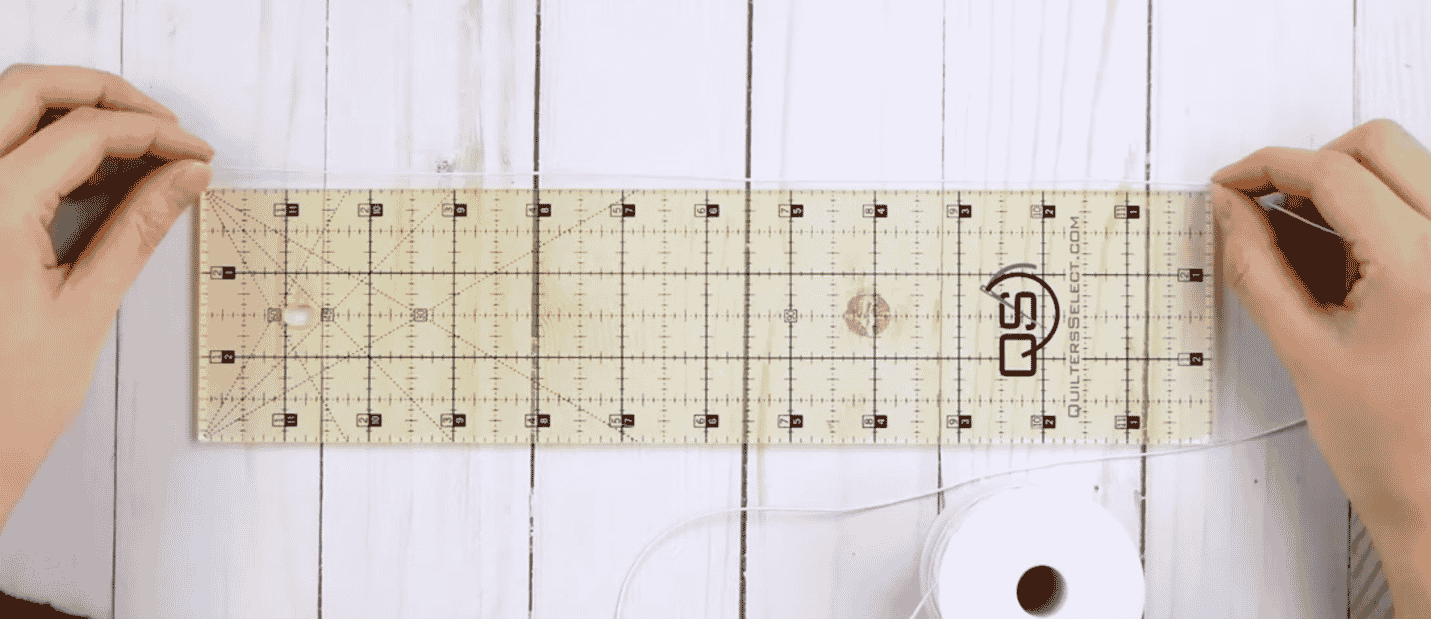
Elastics

Fabric straps
Using a safety pin pinned to the elastic/strap, run it through the pocket to the other side. If you are using an elastic, knot both ends and hide the knot inside the pocket. If you are using straps, they can be secured behind your head when you are ready to wear it.
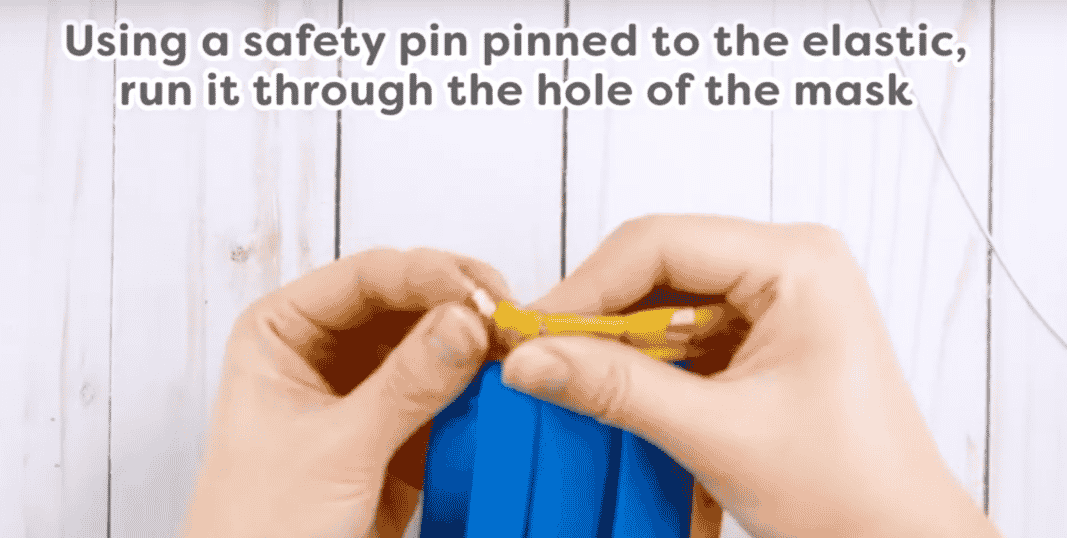
To fit the mask to your face, put it on and press around the aluminum strip to mould it around the shape of your nose. Please follow the washing instructions listed at the top to ensure your reusable face mask stays sanitary!
